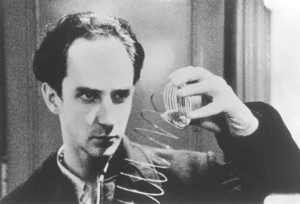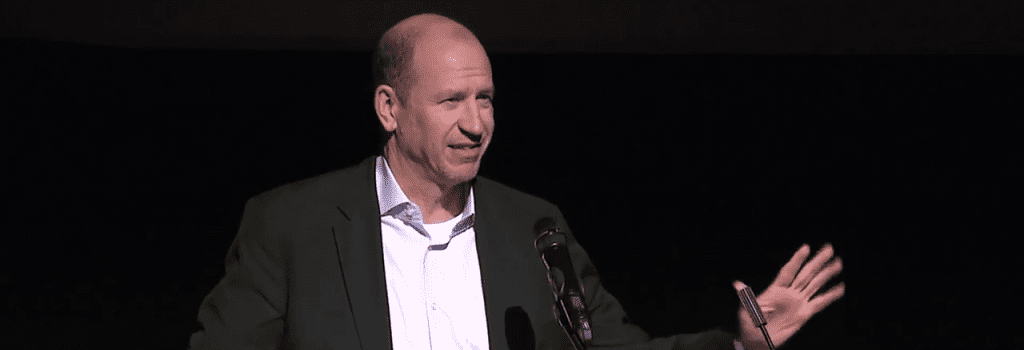 It doesn’t take a lot of money to make a good movie, just a good dose of moxie. For proof, look no further than Darren Aronofsky’s brilliant first feature film π, which he shot for a paltry U.S. $60,000, a sum he raised by asking everyone he knew to give him a hundred dollars. The film was an out-of-nowhere success at the Sundance Film Festival last January.
It doesn’t take a lot of money to make a good movie, just a good dose of moxie. For proof, look no further than Darren Aronofsky’s brilliant first feature film π, which he shot for a paltry U.S. $60,000, a sum he raised by asking everyone he knew to give him a hundred dollars. The film was an out-of-nowhere success at the Sundance Film Festival last January.
Aronofsky won the best director prize and a distributor snapped up the film for a cool million bucks. It is now in limited release across the continent.
π has something for everyone, at least if you’re a fan of chaos theory, stock markets, techno music, cyberpunk conspiracy thrillers and/or Jewish mysticism. It follows the travails of one Max Cohen (played by co-screenwriter Sean Gullette), a brainy mathematician convinced that there are patterns underlying and determining the course of this seemingly chaotic universe. To test his theory, Max gives his room-sized computer the task of analyzing and predicting developments on Wall Street.
He works according to three basic principles: Mathematics is the language of nature. Everything can be understood and represented through numbers. And, if you graph those numbers, patterns will emerge everywhere in nature.
Max’s theories take on truly cosmic dimensions when he meets Lenny Meyer (Ben Shenkman), a Hasidic Jew who introduces Max to Kabbalistic numerology and to the idea that patterns exist not only in nature but in the Torah, too. These patterns, he says, point to a divine creator — but what would such patterns mean? And what should be done with them if they turn out to be authentic?
Recognizes perils
The Torah itself forbids divination, and Aronofsky seems to recognize the perils of reducing both Creator and Creation to easily controlled formulae. The shady stock brokers who pursue Max and want to profit from his discoveries are pretty obvious villains. (Max’s heated, sophomoric exchanges with these “petty materialists” are the script’s one major weak spot.) But are they any worse than the Hasids, who believe that Max has uncovered the true name of God and who want to use that name to usher in the messianic age on their own terms?
Max derives some comfort from his friendship with Sol Robeson (Mark Margolis), a former math professor who prefers Greek thinkers and storytellers to Jewish mystics. Sol spent his career looking for patterns in the infinite digits of pi, the transcendent number used to calculate circumferences and the like, until an ominous stroke forced him to retire. Now he encourages Max to let go of his need to figure the whole world out, to get by instead on intuition, lest he fly too close to the sun and get burned, as it were.
Inventive imagery, creative montage and, above all, some truly nifty ideas lift this film above the more pedestrian flicks that glut the independent film market these days. For Aronofsky, the key to pattern (and therefore purpose?) is repetition, so he repeats several images throughout his film. He also shoots it in an unusual aspect ratio that gives his screen the same dimensions as the Golden Rectangle, a shape discovered by Pythagoras and believed by some to be the basis for patterns throughout the natural world.
Most striking of all, for all its edgy student-film gimmickry and its sometimes migraine-level intensity, π manages to create — for this viewer, at least — a state of almost simple childlike awe, a sense that the world is at once easier to grasp and more deeply unfathomable than we could ever possibly imagine. If this is what our universe is like, just think what the One who made it must be like.
— A version of this review was first published in ChristianWeek.












